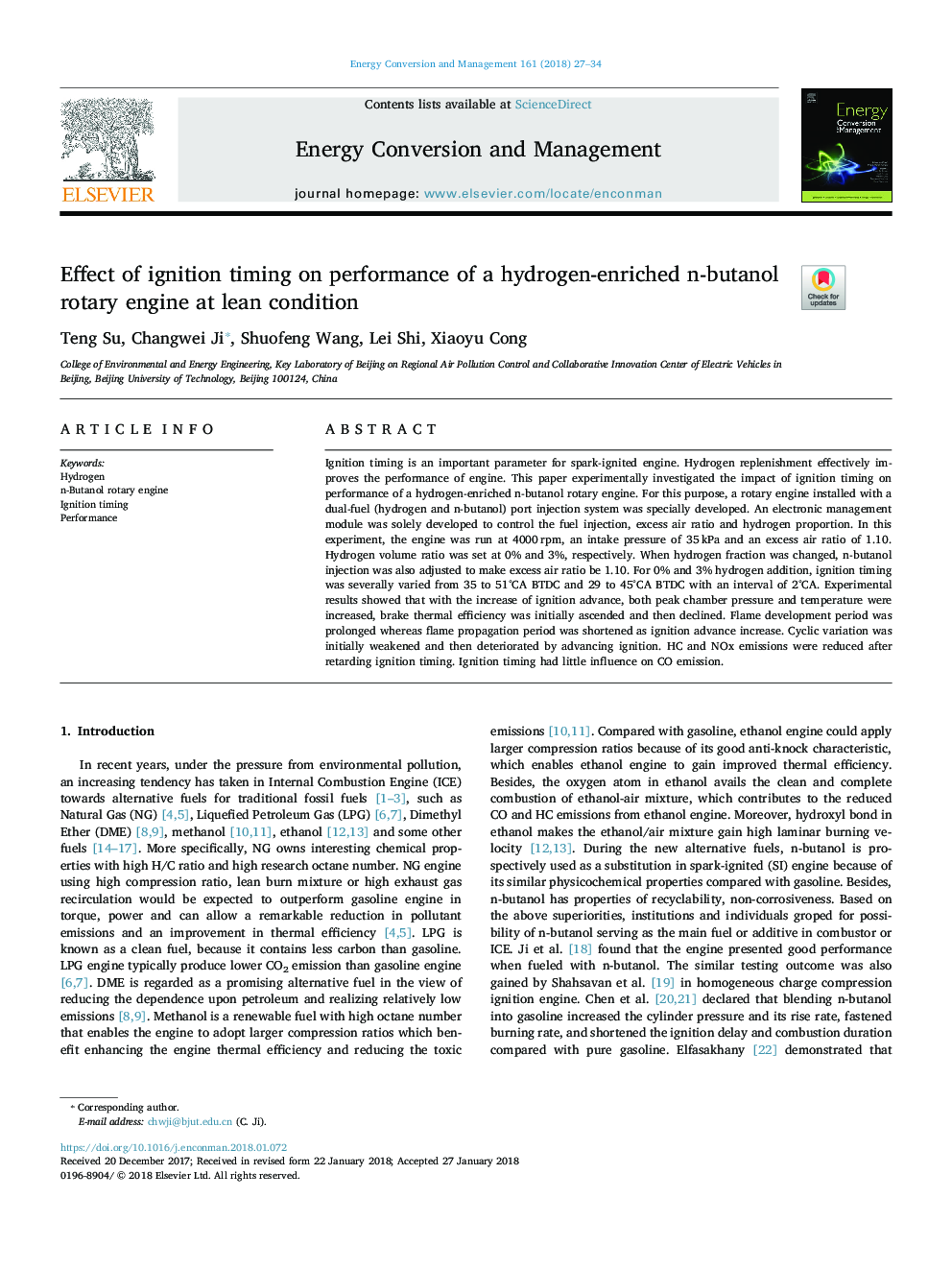| Article ID | Journal | Published Year | Pages | File Type |
|---|---|---|---|---|
| 7158946 | Energy Conversion and Management | 2018 | 8 Pages |
Abstract
Ignition timing is an important parameter for spark-ignited engine. Hydrogen replenishment effectively improves the performance of engine. This paper experimentally investigated the impact of ignition timing on performance of a hydrogen-enriched n-butanol rotary engine. For this purpose, a rotary engine installed with a dual-fuel (hydrogen and n-butanol) port injection system was specially developed. An electronic management module was solely developed to control the fuel injection, excess air ratio and hydrogen proportion. In this experiment, the engine was run at 4000â¯rpm, an intake pressure of 35â¯kPa and an excess air ratio of 1.10. Hydrogen volume ratio was set at 0% and 3%, respectively. When hydrogen fraction was changed, n-butanol injection was also adjusted to make excess air ratio be 1.10. For 0% and 3% hydrogen addition, ignition timing was severally varied from 35 to 51°CA BTDC and 29 to 45°CA BTDC with an interval of 2°CA. Experimental results showed that with the increase of ignition advance, both peak chamber pressure and temperature were increased, brake thermal efficiency was initially ascended and then declined. Flame development period was prolonged whereas flame propagation period was shortened as ignition advance increase. Cyclic variation was initially weakened and then deteriorated by advancing ignition. HC and NOx emissions were reduced after retarding ignition timing. Ignition timing had little influence on CO emission.
Keywords
Related Topics
Physical Sciences and Engineering
Energy
Energy (General)
Authors
Teng Su, Changwei Ji, Shuofeng Wang, Lei Shi, Xiaoyu Cong,
